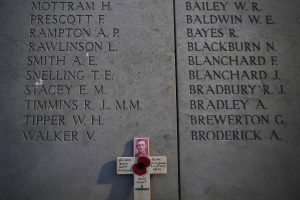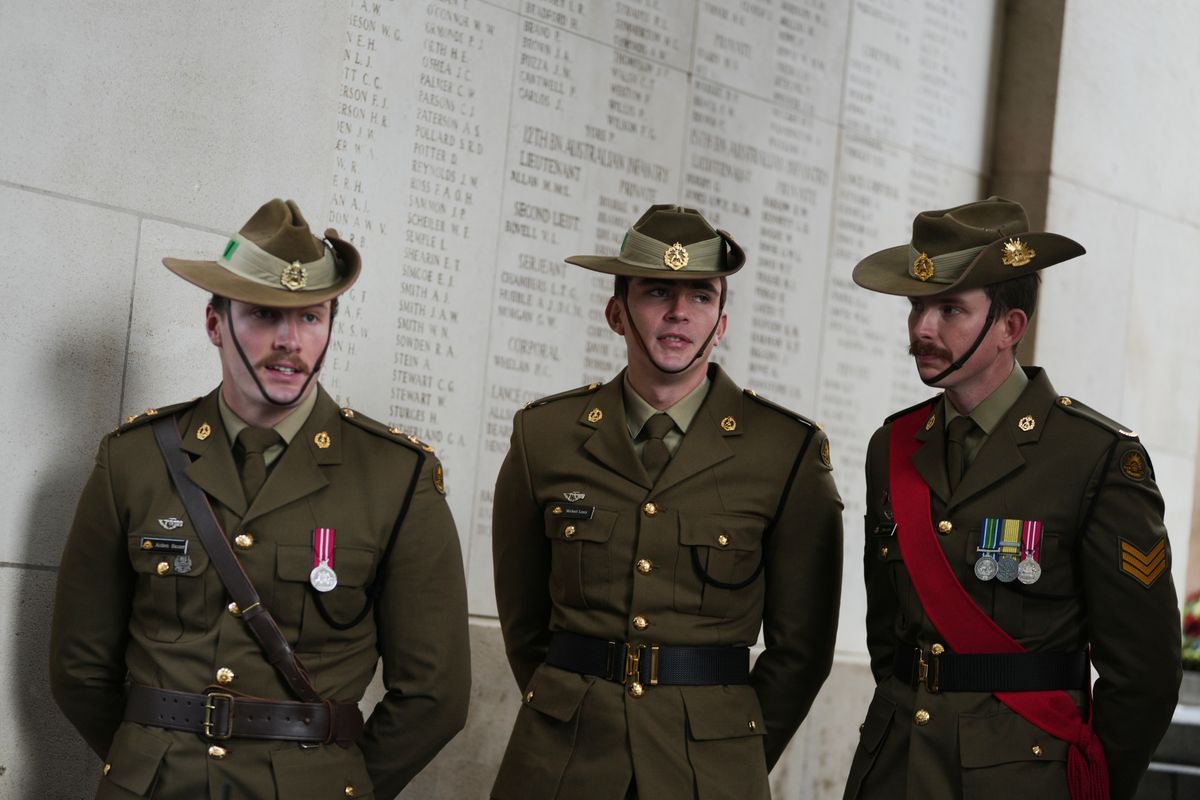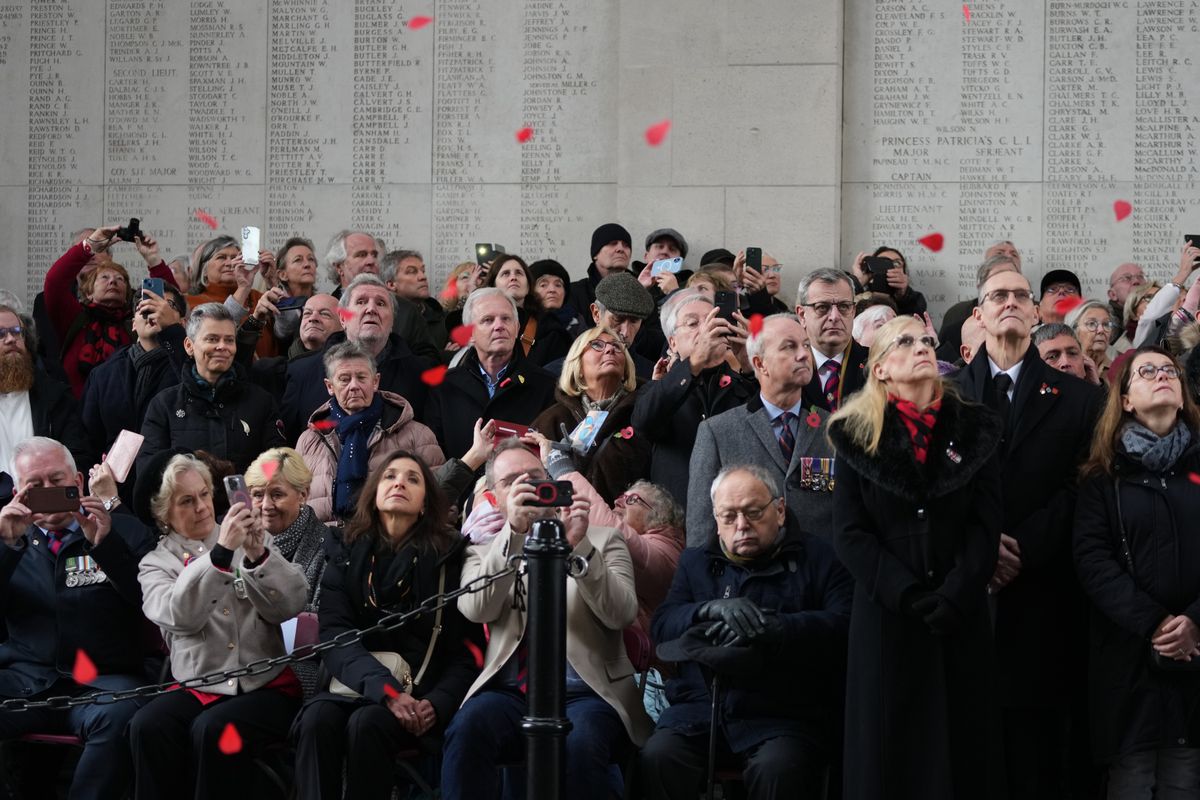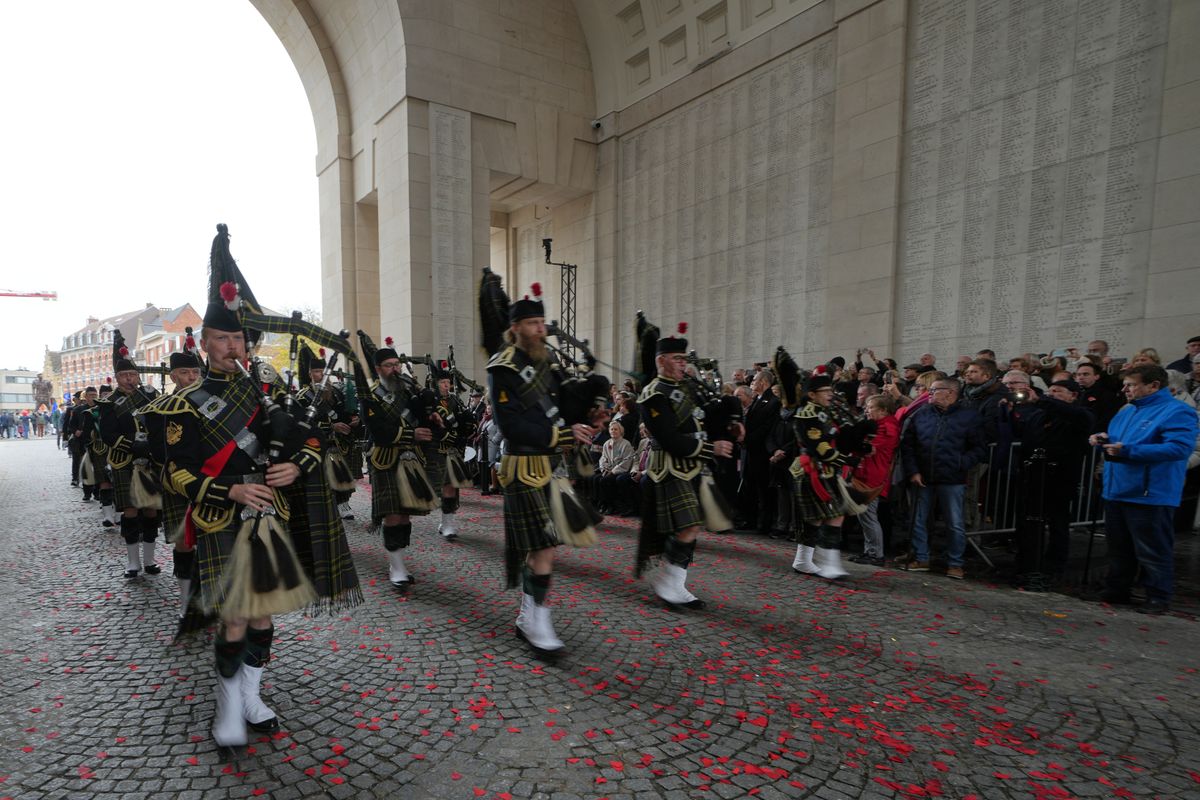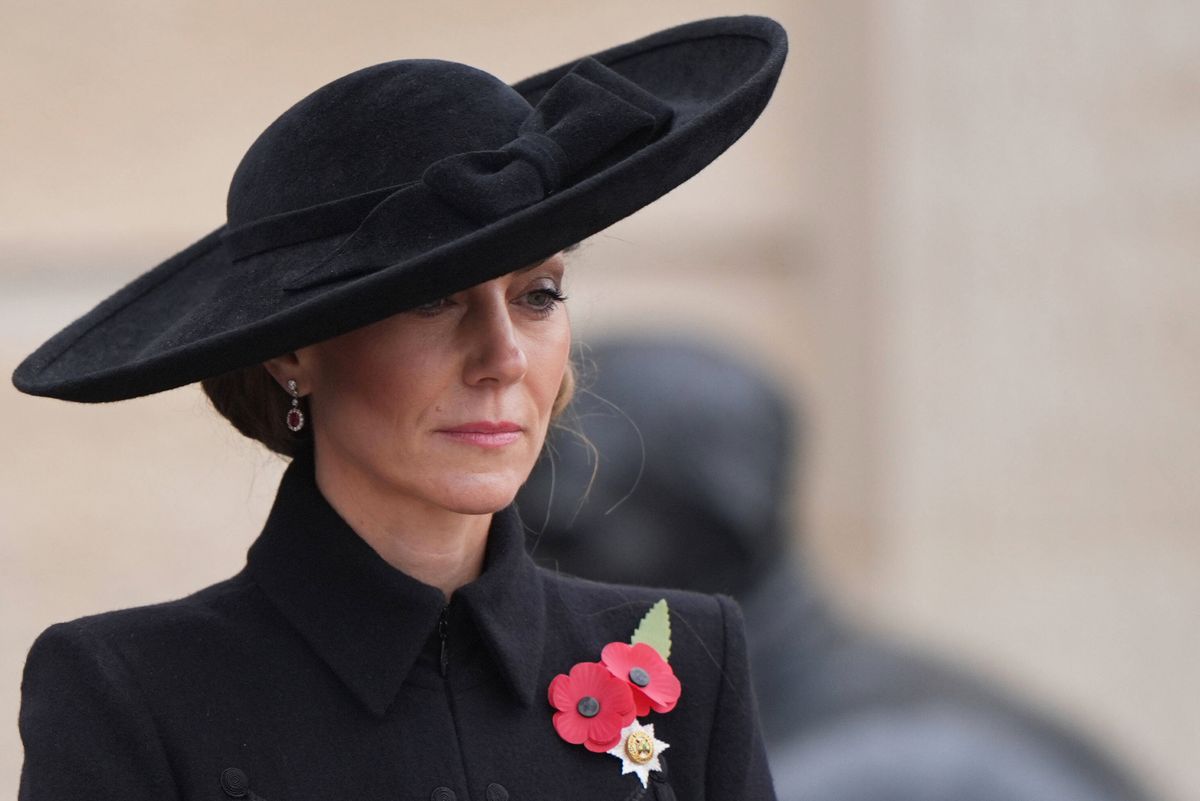YPRES, Belgium (AP) — Red poppy flowers were dropped onto soldiers, politicians and onlookers from across the world who gathered Tuesday in western Belgium for a ceremony to commemorate the end of World War I.
The attendees laid wreaths at a newly renovated memorial for the fallen in Ypres, the Belgian town that earned the grim honor of being synonymous with the brutality of conflict.
Tuesday is known as Armistice Day — or Veterans Day in the United States and Remembrance Day in Britain, Australia, New Zealand and South Africa — marking the end of WWI.
“Many of the men who fought in the Great War believed that they were fighting in a war to end all wars. Sadly, they were mistaken,” said Benoit Mottrie, the head of the Last Post Association, whose volunteers honor the dead by playing bugles every day in Ypres’ Menin Gate, a massive stone memorial inscribed with the names of tens of thousands of soldiers who were killed but left without graves.
“Less than 20 years later the world was plunged into a new conflict and ever since wars have continued to rage around the giobe. As we speak, men women and children are still being killed in Ukraine, Gaza, South Sudan and a depressing number of other places,” he said.
Staff at the nearly 50-feet tall monument dropped the red flowers onto the attendees through giant circles cut in the marble ceiling.
Soldiers from New Zealand to Canada paraded through town, with a Sikh group marching barefoot carried an enormous orange drum.
Bagpipes and bugles rang out alongside an electric guitar that played “Masters of War” by Bob Dylan in Flemish and English. A choir sang John Lennon’s “Imagine.”
In Britain, many people paused for two minutes of silence at 11 a.m., marking the moment the war ended in 1918, at the 11th hour of the 11th day of the 11th month.
In France, President Emmanuel Macron attended the traditional ceremony at the Tomb of the Unknown Soldier under the Arc de Triomphe and lit the eternal flame at the memorial engraved with the words: “Here rests a French soldier who died for the nation.”
Australian Prime Minister Anthony Albanese said that the nation’s minute of silence was “a noiseless echo of the hush that fell across Europe when the guns stopped in 1918.”
From 1914-1918, the armies of France, the British Empire, Russia and the U.S. fought against a German-led coalition that included the Austro-Hungarian and Ottoman empires. The war killed almost 10 million soldiers, sometimes tens of thousands on a single day.
Hundreds of thousands died in Ypres alone.
The blood-soaked fields of the Flanders region saw the development of more modern ways to kill. Horses galloped next to tanks. Poison gas was introduced. Aerial surveillance provided precision to artillery that overwhelmed medieval fortifications.
In the wake of “the war to end all wars” and then WWII, a modern geopolitical system was forged with an aim to avert future conflicts, giving birth to the United Nations and the European Union.
Decades later, across once-devastated Europe, nations are again rearming, plowing investments into the defense industry in response to Russia’s full-scale invasion of Ukraine.
The 27-nation EU has been worried by a series of airspace violations, some of them close to its borders with Russia, Belarus and Ukraine. Western officials have accused Russia and its proxies of staging dozens of incidents of sabotage.
Aside from Europe, wars in places as distant as Gaza and Sudan have had impact well beyond their borders. Tensions in Asia have led Japan and others to increase military spending. And around the world, ascendant political movements challenge the democratic order, with authoritarianism on the rise. “The values under attack in our present-day society are the same as they were in 1914 and 1939. The loss of life in Donbas, Darfur and Gaza City is no less tragic than the slaughter of the trenches,” Mottrie said in Ypres.
“There are parallels to be drawn and lessons to be learnt.”
___
Associated Press writers Rod McGuirk in Melbourne, Jill Lawless in London, and Sylvie Corbet in Paris contributed to this report.
By SAM McNEIL
Associated Press

